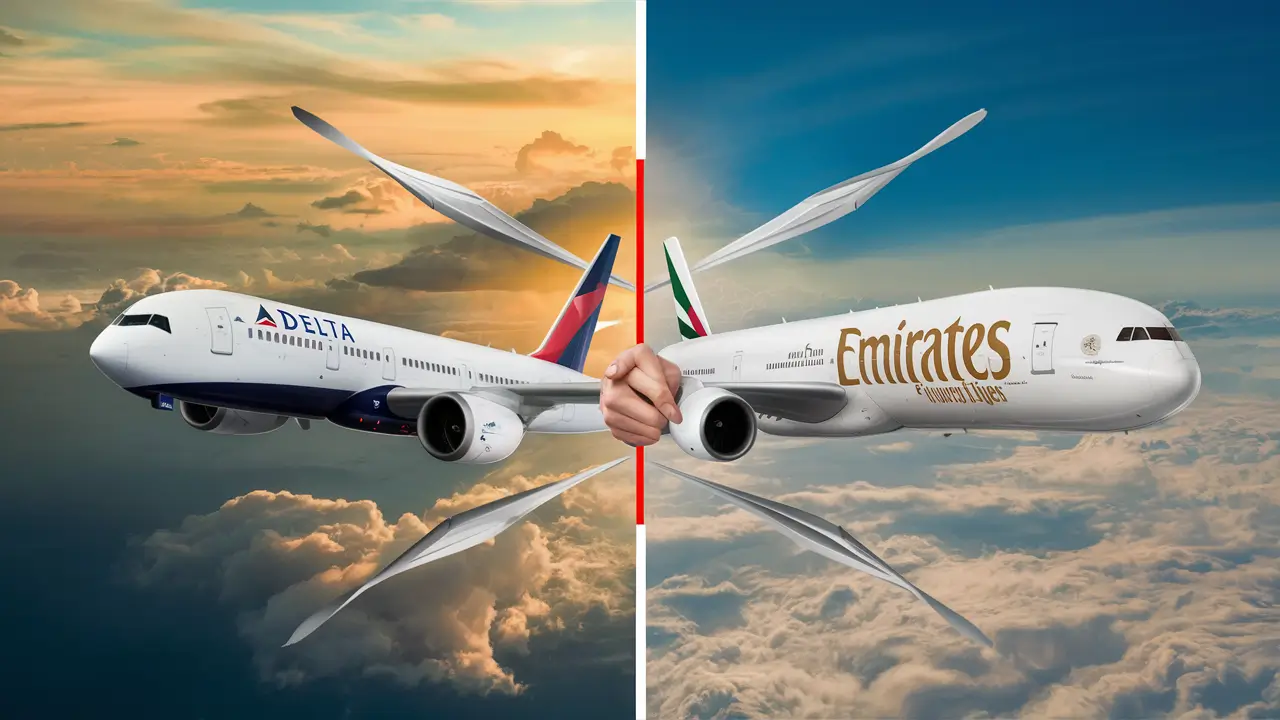Is Delta and Emirates partner?

Are Delta and Emirates partnered with airlines?
Among the most often-used international airlines worldwide are Delta Air Lines and Emirates. Among numerous criteria, these two airlines compete based on the fact that they run many worldwide flights across six continents. Though Delta and Emirates are codeshare partners, it is noteworthy that the two airlines do not have mutual strategic cooperation.
Hence, are Delta and Emirates affiliated airlines?
The short response to this is no; however, the relationship between these two airlines is far more complex than a one-word response could capture.
Agreements for Codeshavers Delta and Emirates have some type of cooperation on select routes based on codeshare agreements, even though they lack a system-wide partnership akin to a global alliance. A codeshare arrangement allows the two partner airlines to sell their tickets on one another's flights, therefore augmenting the available passenger routes.
For instance, Emirates and Delta work together.
so, certain flights with the EK code from the United States to Europe and back exist. Travelers may therefore look for and purchase one itinerary including flights run by both companies. The same is true in reverse, so Delta has been selling certain tickets, including Emirates airplane travel.
These are mutually beneficial routes for Delta and Emirates, as well as extending the options for passengers. Thus, the interconnection between the two airlines is somewhat limited in terms of the number of codeshares. Only a few of the connections are code-shared between Delta and Emirates in most of the routes they operate.
Differing Alliance Strategies One of the reasons why Delta and Emirates are not fully in a partnership alliance is because of their difference in their world alliance strategy.
SkyTeam membership: Delta is a member of the SkyTeam alliance and it’s one of the founding members of the alliance with Air France-KLM and Korean Air. This means Delta Airlines Ticket has a wide partner network of airlines in all continents around the globe. However, Emirates is not affiliated with any of the three global airline alliances, which include Sky Team, Oneworld, or Star Alliance. Emirates, on the other hand, heavily depends on a wider route network and its branding.
Current information on Delta includes that it already has some code-sharing agreements with some of the airlines that compete with Emirates in SkyTeam, such as China Eastern; therefore, it would not be strategic for Delta to enter into a full revenue-sharing joint venture partnership with Emirates at this time.
Overlapping Route Networks The final analytical challenge that any prospective Delta-Emirates partnership has to overcome is that their long-haul networks intersect to a great degree. It is established that both airlines give considerable emphasis to the North American-Asian market, Africa, and the Middle East routes.
For instance, Emirates and Delta both operate on the following non-stop routes:
The US to destinations such as Dubai, Seoul, Tokyo, and Mumbai. The two airlines also have centers in certain key African locations, for instance, Johannesburg and Cairo.
The intense overlapping of the routes most likely poses the potential threat of decreasing the competitiveness of the fares on these routes if the two engage in a joint venture. This was because reduced competition might not be good for consumers, as observed from the following indications: This way, they can compare with other networks the best fares to book a ticket.
Hopes for the Development of Cooperation in the Future In the current and future years, there may be prospects for specific partnerships between Delta and Emirates—two leading airlines—as a whole, which are not very extensive. One of the compelling areas to focus on is Dubai, which is home to the Emirates and a prominent connecting city worldwide.
Indeed, sometimes the value of a codeshare agreement to and from Dubai is enhanced by the fact that Emirates is growing its partnership with Qantas and flying more passengers through Dubai. This would make it easy for Delta to feed Emirates with connecting flights from Dubai to the huge network Emirates has in Africa, Asia, and the Middle East.
Delta and Emirates have also discussed in the past protected by antitrust, cooperation, and code-share on some routes and it is expected that these would be scrutinized by competition regulators.
It also means that the positive dynamics of the political relations between the UAE and the United States can impact the decisions of both Emirates and Delta on further cooperation.
The Bottom Line Thus, it can be concluded that Delta and Emirates have a limited type of partnership that implies certain cooperation in the form of codesharing. However, the two airlines are not in a code-sharing or strategic partnership at present in terms of a total alliance or a venture. That is why, while Delta is deeply involved in SkyTeam and Emirates is not, the problem is that extensive geographical matches also hinder the development of closer cooperation.
However, the aviation industry is dynamic and is facing various changes that may or may not be affecting this research. As it is today, the two airlines are still running as separate concerns, but there is always the potential for more cooperation between two of the world’s biggest brands in the years to come.
Book your Delta Airlines ticket now! Call +1 833-902-2090
